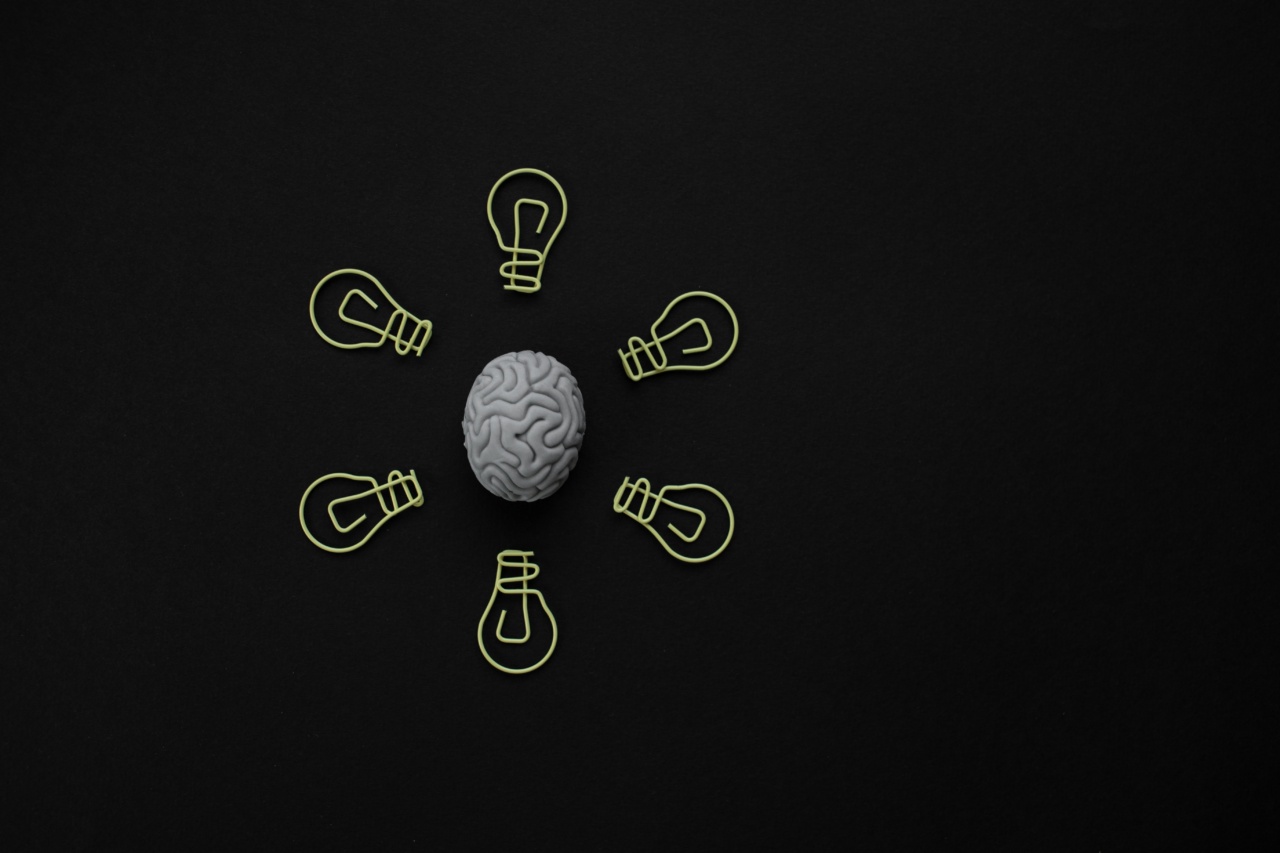Our brain is undoubtedly one of the most crucial organs in our body. Not only does it control our bodily functions, but it also enables us to experience emotions, thoughts, and memories.
Just like any other part of our body, our brain requires regular exercise and stimulation to stay in good shape. However, many people tend to overlook the importance of brain health and fail to adopt habits that promote cognitive fitness.
In this article, we will explore the significance of keeping your brain in shape and provide practical tips to help you achieve optimal mental well-being.
The Importance of Brain Health
Our brain is responsible for a wide range of functions, including memory, problem-solving, decision-making, and learning. As we age, it is natural for our cognitive abilities to decline gradually.
However, by engaging in activities that promote brain health, we can slow down this decline and maintain our mental sharpness for longer periods.
Keeping your brain in shape not only enhances cognitive abilities but also reduces the risk of developing neurodegenerative diseases, such as Alzheimer’s and dementia, later in life.
Research has shown that individuals who regularly challenge their brains with mental stimulation have a lower likelihood of experiencing cognitive decline and memory loss.
Practical Ways to Boost Brainpower
Now that we understand the significance of brain health, let’s explore some practical ways to keep our brains in shape:.
1. Engage in Regular Exercise
Physical exercise not only benefits our body but also has a positive impact on our brain. Engaging in cardiovascular activities, such as running, swimming, or cycling, increases blood flow to the brain, delivering vital nutrients and oxygen.
Exercise also promotes the growth of new brain cells and enhances connections between existing neurons, improving overall brain function.
2. Follow a Nutritious Diet
Eating a balanced diet rich in essential nutrients is vital for brain health. Include foods that are high in omega-3 fatty acids, antioxidants, and vitamins, as these nutrients have been proven to support cognitive function.
Some brain-boosting foods include fatty fish, blueberries, turmeric, broccoli, pumpkin seeds, and dark chocolate.
3. Get Sufficient Sleep
Adequate sleep plays a crucial role in brain health and overall cognitive performance. While we sleep, our brain consolidates memories, clears out toxins, and prepares for the next day.
Aim for 7-9 hours of quality sleep each night to allow your brain to recharge and rejuvenate.
4. Challenge Your Brain
Mental stimulation is key to keeping your brain in shape. Engage in activities that challenge your brain, such as puzzles, crosswords, reading, learning a new language, or playing a musical instrument.
Regularly exposing your brain to new and stimulating experiences helps create new neural pathways and keeps your mind sharp.
5. Practice Mindfulness
Mindfulness and meditation have been shown to improve brain health and cognitive abilities. By practicing mindfulness, you can reduce stress, increase attention span, and enhance overall mental well-being.
Set aside a few minutes each day to engage in mindfulness exercises and reap the numerous benefits for your brain.
6. Stay Socially Active
Maintaining social connections and engaging in social activities is crucial for brain health. Interacting with others stimulates brain function, improves memory, and enhances overall cognitive abilities.
Join clubs, volunteer, or participate in group activities to stay socially engaged and keep your brain in shape.
7. Manage Stress Levels
Chronic stress can negatively impact brain health and cognitive abilities. It is essential to find effective ways to manage stress, such as exercising, practicing relaxation techniques, or seeking support from friends and family.
By reducing stress levels, you can protect your brain from potential damage and promote optimal mental well-being.
8. Continuously Learn and Grow
Never stop learning! Engaging in continuous learning and intellectual challenges helps keep your brain in shape. Take up new hobbies, enroll in online courses, attend workshops or seminars relevant to your interests.
By exposing your brain to different subjects and acquiring new knowledge, you can enhance your cognitive abilities and boost overall brainpower.
9. Maintain an Active Social Life
Regular social interactions have been linked to better brain health and decreased risk of cognitive decline. Make an effort to spend quality time with friends and family, join community groups, or engage in activities that involve teamwork.
Socializing not only provides mental stimulation but also helps combat feelings of loneliness and improves overall well-being.
10. Remain Consistent
When it comes to brain health, consistency is key. Adopting these habits sporadically is unlikely to yield significant results. It is essential to incorporate these practices into your daily routine and make them a regular part of your lifestyle.
Consistency ensures that your brain receives the necessary stimulation and care to remain in top shape.
In Conclusion
Keeping your brain in shape is a lifelong commitment that requires conscious effort and dedication.
By following the practical tips outlined in this article, you can improve your cognitive abilities, enhance your overall mental well-being, and reduce the risk of age-related cognitive decline. Remember, just like physical exercise is crucial for maintaining a healthy body, mental exercise and stimulation are vital for a healthy brain.




























